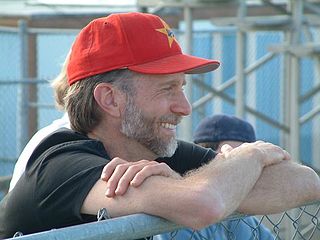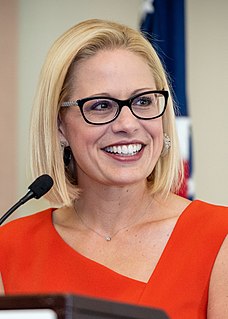A Quote by Barry Jenkins
Art is inherently political. Even trying to make a film that has nothing to do with politics is, in and of itself, a political act.
Related Quotes
As a composer, I believe that music has the power to inspire a renewal of human consciousness, culture, and politics. And yet I refuse to make political art. More often than not political art fails as politics, and all too often it fails as art. To reach its fullest power, to be most moving and most fully useful to us, art must be itself.
Using the word ‘political’ in the widest possible sense. Desire to push the world in a certain direction, to alter other peoples’ idea of the kind of society that they should strive after. Once again, no book is genuinely free from political bias. The opinion that art should have nothing to do with politics is itself a political attitude.
My art gets called political, as opposed to my intending it to be political. I think that's something that happens with black artists or marginalized voices trying to speak truth. Because there are things in the status quo to speak out against, speaking out against them will inherently be political.
The worst illiterate is the political illiterate. He hears nothing, sees nothing, takes no part in political life. He doesn't seem to know that the cost of living, the price of beans, of flour, of rent, of medicines all depend on political decisions. He even prides himself on his political ignorance, sticks out his chest and says he hates politics. He doesn't know, the imbecile, that from his political non-participation comes the prostitute, the abandoned child, the robber and, worst of all, corrupt officials, the lackeys of exploitative multinational corporations.
The ultimate aim of politics is not politics, but the activities which can be practised within the political framework of the State. Therefore an effective statement of these activities - e.g. science, art, religion - is in itself a declaration of ultimate aims around which the political means will crystallise... a society with no values outside of politics is a machine carrying its human cargo, with no purpose in its institutions reflecting their care, eternal aspirations, loneliness, need for love.
Let me see: art and activism. I can always fall back on, "the question should be, what isn't political? Everything you do is political, even if it's abstract. You're making a political statement even if it's unwittingly." I think so much of art is unconscious anyway, the artist doesn't know the real reason they're doing it. They're just kind of going along with it intuitively.
Many novelists say, "I'm not a political novelist" - myself included. That's a standard, even a default position. Whereas that divide between art and politics simply isn't possible in many countries. In Hungary, you couldn't be a fiction writer and then, when asked about politics, put your hands up in the air and say "But I'm not a political novelist." If you're a Chinese novelist, a novelist in a country where censorship is such an issue, how do you claim that politics has nothing to do with your writing? It's in your writing, it's shaping your words.
Majorities are of two sorts: (1) communal majority and (2) political majority. A political majority is changeable in its class composition. A political majority grows. A communal majority is born. The admission to a political majority is open. The door to a communal majority is closed. The politics of political majority are free to all to make and unmake. The politics of communal majority are made by its own members born in it.
I was just born involved in politics. My family is conservative Mormon, and so I was born - although the Mormon faith is not inherently political, their faith requires some political stands, and those are ones that I happen to disagree with vehemently - so I was just political from a very early age.





































